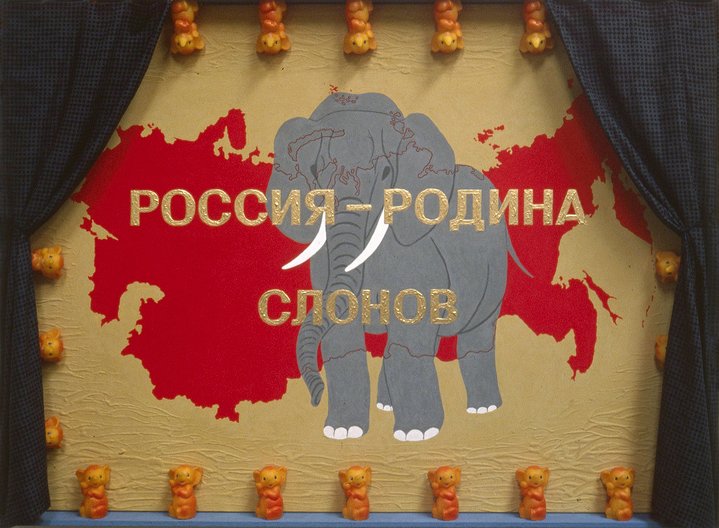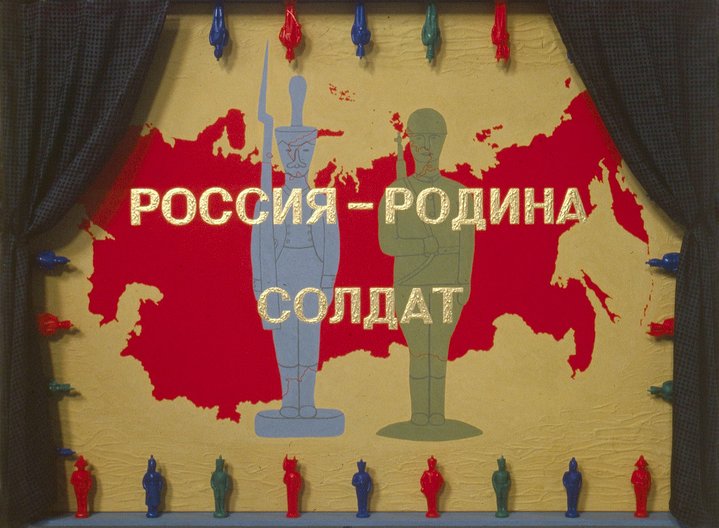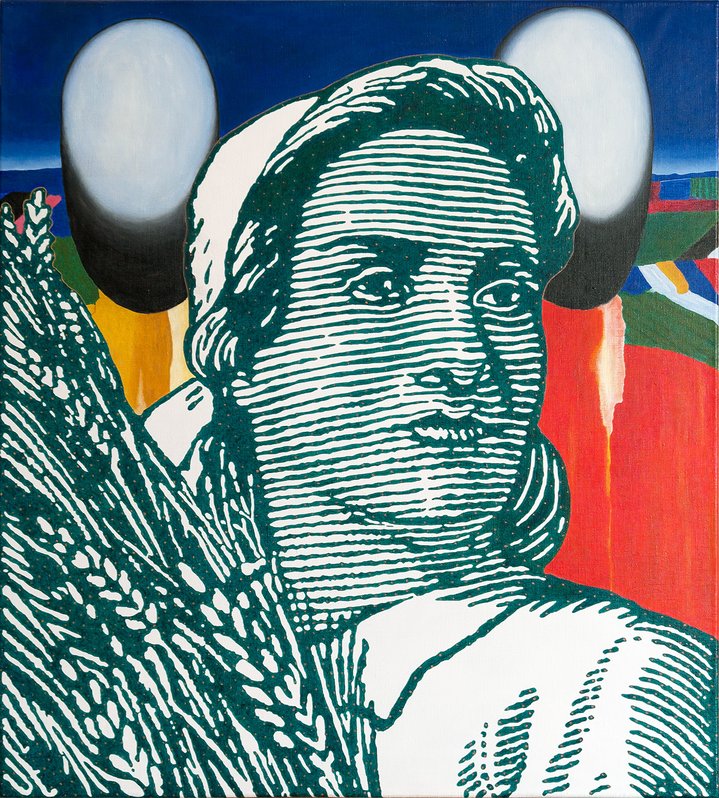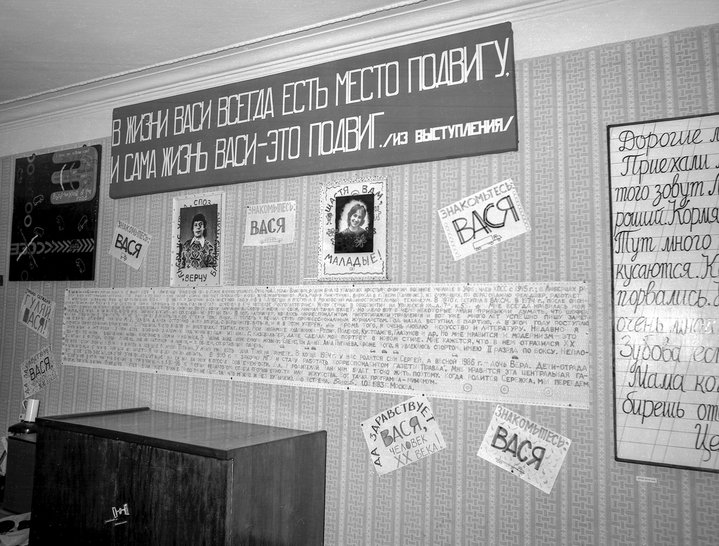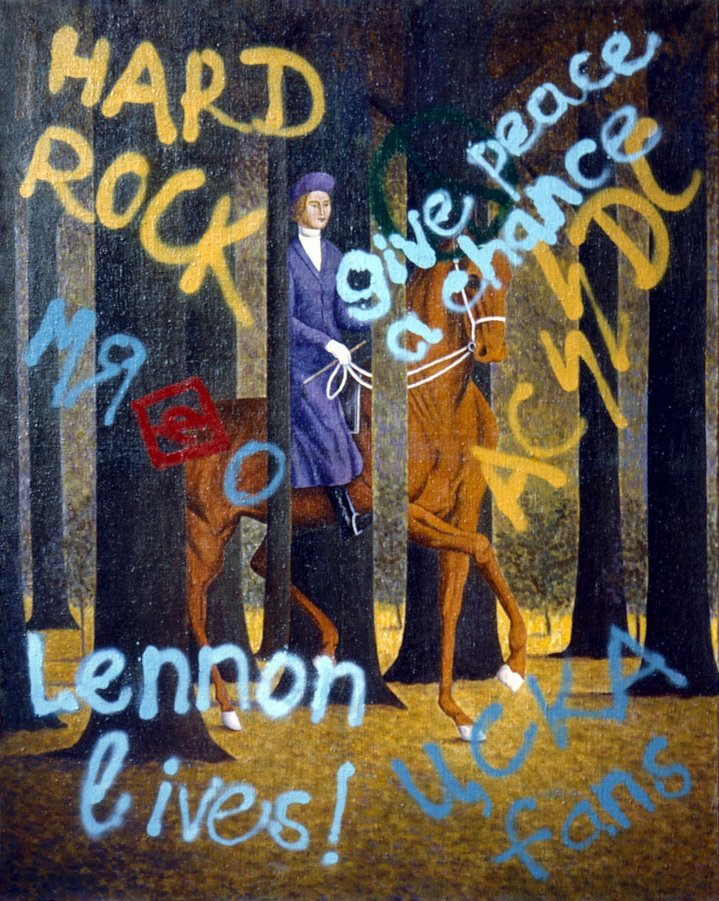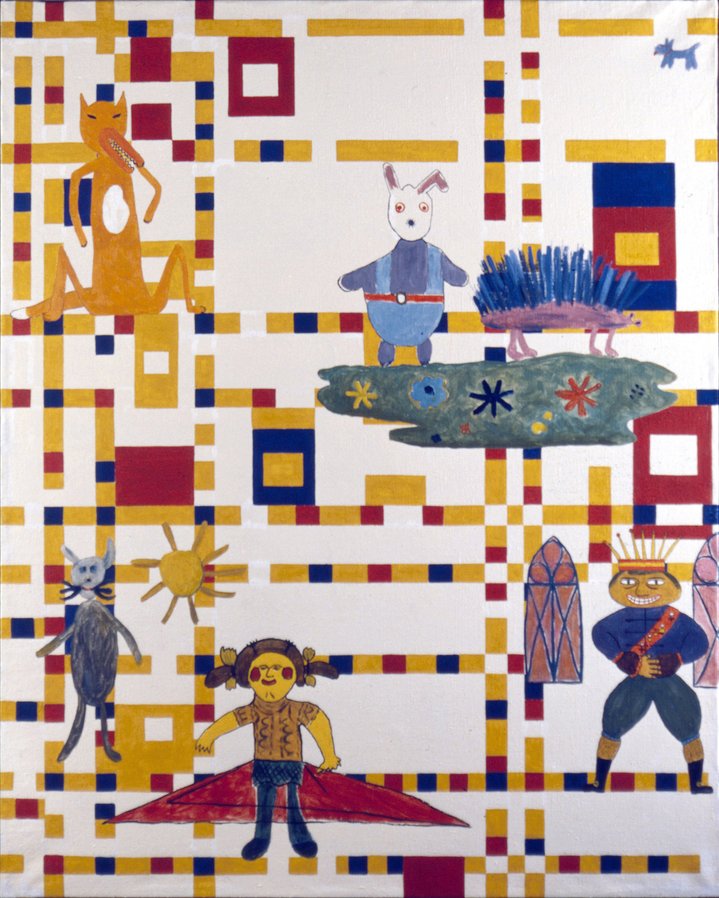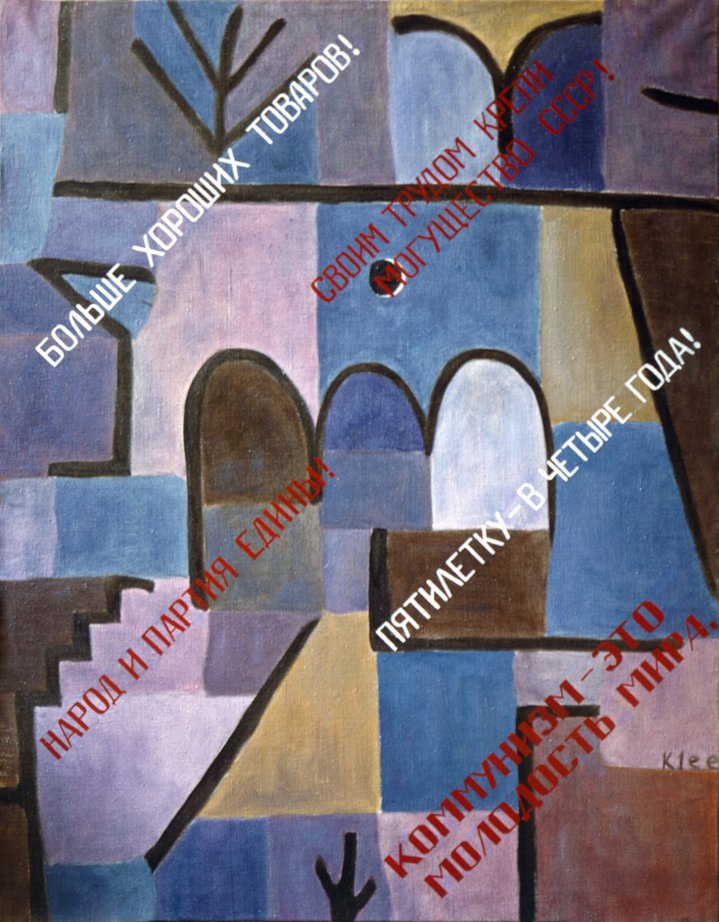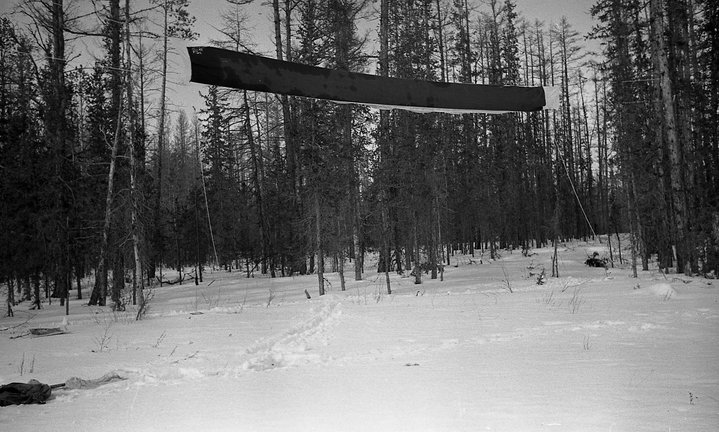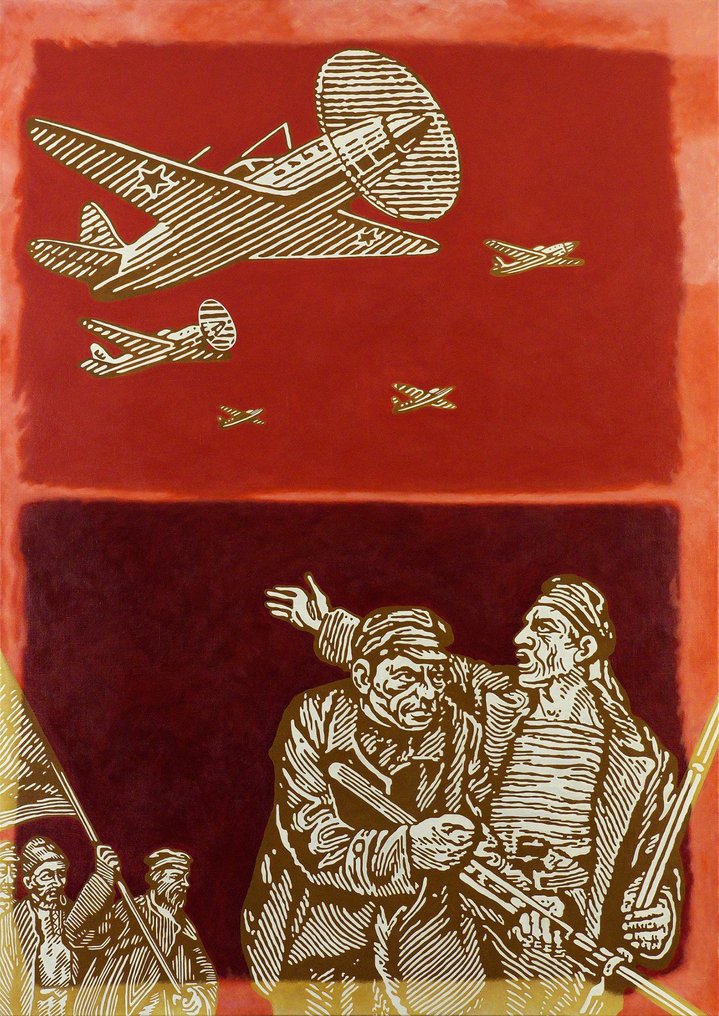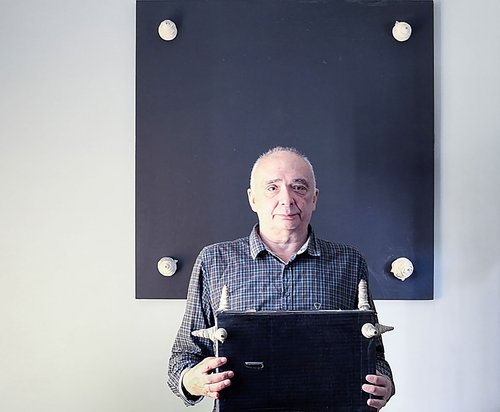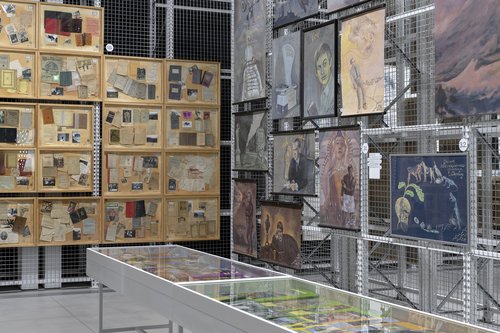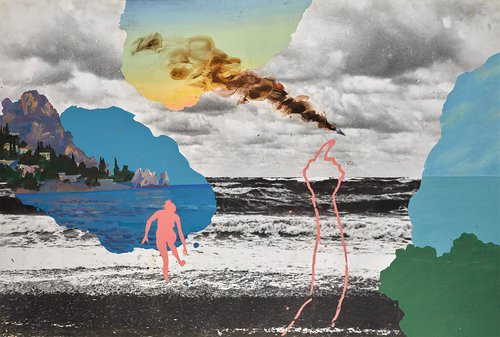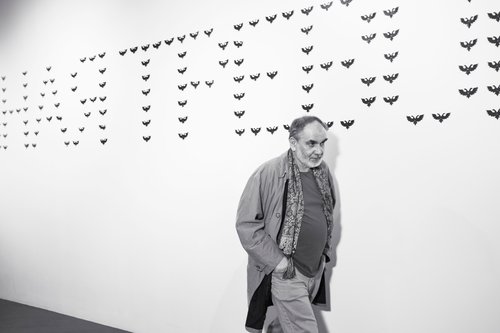Georgy Kiesewalter on Postage Stamps as Witnesses of Soviet History

Georgy Kiesewalter. Hero. The Artist-Collector. Moscow Museum of Modern Art. Moscow, 2023. Courtesy of the artist
Georgy Kiesewalter is unveiling a solo exhibition at the Moscow Museum of Modern Art. In his project ‘Artist Collector’ the artist looks at the history of his home country from an unusual angle. His reflections on its aesthetics and spiritual values are inspired by postage stamps.
The boundery between documentary and mockumentary is often blurred in the art of Georgy Kiesewalter (b. 1955). Born in Moscow and initially trained as an English teacher, he became a conceptual artist and a member of the Collective Actions group and is known as a tireless chronicler of the city’s underground scene of the 1970s and 1980s. Early on, he started to photograph the Collective Actions’ performative ‘trips out of town’, preserving them for posterity. Throughout his career, he has been constantly juggling various hats: creator, observer, artist and art historian. “The balance between my own art and photography was not always easy to maintain. If I felt more like an artist, I somehow forgot about the photographic side. In the 1970s I did not like shooting exhibitions I had participated in,” he confessed in a preface to his book ‘In Artists’ Studios’, a catalogue of the eponymous exhibition he curated at the Ekaterina Foundation in Moscow. Kiesewalter is the author of several books on contemporary art, as well as documentary photo albums and collections of essays and memoirs written by other protagonists of the late Soviet underground art world. They allow the reader to tour this perished Atlantis, meet its inhabitants, look into their eyes and almost hear their voices. It is probably no coincidence that his artistic projects are often based on archives, sometimes real and sometimes fictional.
Kiesewalter’s project ‘Artist Collector’ tells the story of an imaginary artist who is fascinated by early Soviet postage stamps. In the guise of this eccentric character, Kiesewalter re-thinks their visual vocabulary, reworking them in different styles of 20th century art. This omnivorous Artist Collector flaunts erudition and painterly skills, summoning the likes of Paul Mondrian, Kazimir Malevich, and Andy Warhol. The series took ten years to make and has spread across different media, from oil and acrylic paintings to silkscreen prints, video and installation. Unexpectedly, it has proved to be topical in today’s Russia. “The project is very timely, as the sense of encapsulated cultural space has returned, and the role of ideology, which is woven into all spheres of life, has intensified,” the exhibition’s curator, Olga Turchina told Art Focus Now. “The layers of culture and ideology are becoming inseparable, commenting on each other, forming a single narrative. Let us not forget that Moscow Conceptualism brought our art back into the global context and became the first truly original style in Soviet art since the famous 1932 decree that established Socialist Realism as the only realism.”
One cannot help wondering how autobiographical Kiesewalter’s character is. Certainly the artist readily acknowledges their inner kinship. He collected stamps as a child, his mother never threw them away. At some point, she asked him to pick them up from her apartment as they occupied too much space. “I looked at them with a new eye and was surprised how diverse in style they were, especially the early Soviet ones,” he says. “In the 1920s there was both Avant-Garde and Socialist Realist imagery on stamps, they co-existed in parallel. Stamps from the 1950s were much more unified and boring.” Abstraction worked well with the early specimens, but not the ones from the 1950s.
This is certainly not the first mockumentary project in Kiesewalter’s career. In the 1980s he created the Museum of Vasya Belov, turning his room in a Moscow communal apartment into a memorial dedicated to a fictional truck driver and amateur journalist, supposedly put together by his friend and admirer. This was a jocular take on the Soviet cult of heroes of labour, workers or peasants whose biographies and exploits were heavily edited if not totally forged by official propaganda. Once, he invented an artist who was an ex-colonel from the Soviet Army’s General Staff. His artworks, half paintings and half assemblages were displayed intriguingly behind curtains like secret maps in General Staff offices. This fascination with archives comes naturally to Kiesewalter. On the walls of his Moscow flat, century-old photographs of his ancestors, works of his fellow non-conformists and modest cityscapes by his aunt Vera Kiesewalter, a gifted watercolour artist, hang side by side. He dedicated one of his projects to his family, a populous clan of ethnic Germans, who settled in Russia in the 18th century. Some of them left after the Bolshevik Revolution.
Kiesewalter was one of the founder members of the Collective Actions in the mid 1970s, and the group’s obsession with documentation suited his temperament. In the era when photography was a rare and valued skill, he always brought his camera on these trips. Now it is through his eyes and lens that we see their iconic actions today. After he graduated from the Moscow Pedagogical Institute he was sent for three years to teach in Yakutsk, the capital of Russia’s remote Northern region of Yakutia. He kept up a prolific correspondence with Andrei Monastyrsky (b. 1949) and eventually one action even took place in Yakutsk. This remarkable early incident of collaborative remote work, bordering on a practical joke, was titled ‘To G.Kiesewalter’. His fellow artists from Moscow sent him a slogan, covered in black fabric with a set of instructions. The exiled artist had to hang it between trees in a wood, step back from it, take the black covering down using the attached strings and leave without reading it. “I followed the instructions slavishly, yet when I raised my camera to photograph it, I realised that I could read the slogan, even though I was not supposed to. What it said was very simple, something like ‘G. Kiesewalter has hung this slogan here in Spring of whatever year it was’.” When asked if he felt more like a participant or an observer of Collective Actions, he pauses for reflection. “I was very enthusiastic and involved at first, in the 1970s. Then I left for Yakutsk and when I returned, something had changed. The air had changed. Postmodernism was coming up.” He found the new actions of the group too theatrical, too carefully scripted and not as spontaneous as before and did not share Monastyrsky’s newly found passion for linguistic games. “I still went there and took photographs, but I felt more like an observer”, he admits. “After Yakutsk, I had a hard time fitting in again. It took me some time to figure out what to do with my own art. Maybe that’s why I got into documentation.”
He contributed a lot to MANI (Moscow Archive of Underground Art), collecting material for the archive from different artists and photographing them in their studios. Together with artist Vadim Zakharov (b. 1959) he put together a handmade photography album ‘In the Studios’. It became a monument to the underground art scene but this happened on the brink of unprecedented change. “A copy of the album got into the hands of KGB and we all expected something bad to happen. We even started to prepare letters of explanation. Yet, months passed and everything was quiet. There was some internal struggle going on up there [at the KGB]”, he recollects. After the onset of Perestroika and Sotheby’s 1988 auction in Moscow, the persecution of unofficial art ended. Many artists left the country. Kiesewalter moved to Canada in 1996 yet felt out of place there and returned to Russia. Having spent so much of his life documenting the art of other people, he now feels he has lagged behind in documenting his own. “I am going to put an album together”, he says.
Georgy Kiesewalter. The Artist-Collector
Moscow, Russia
27 July – 27 August, 2023






